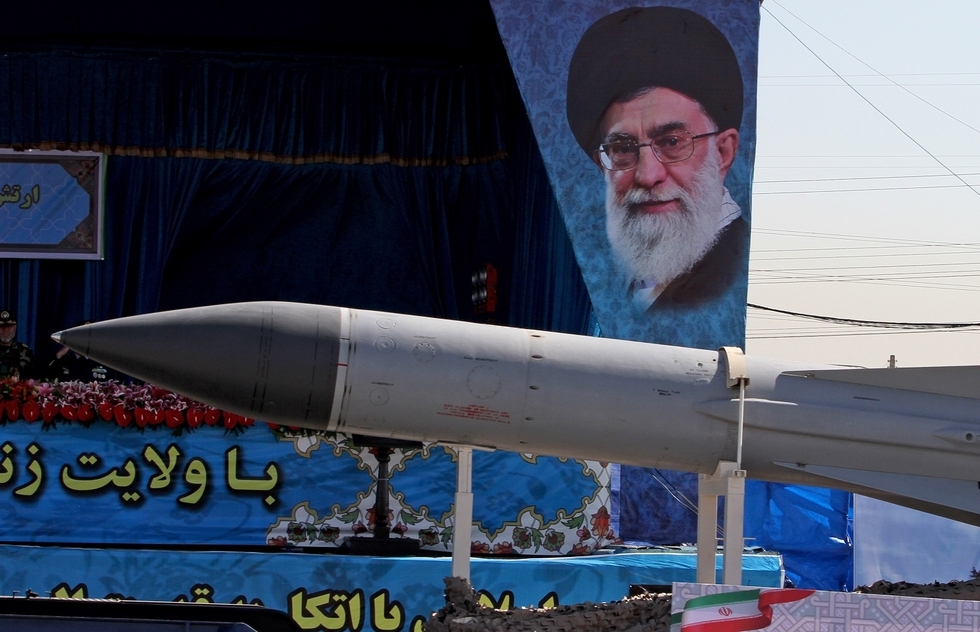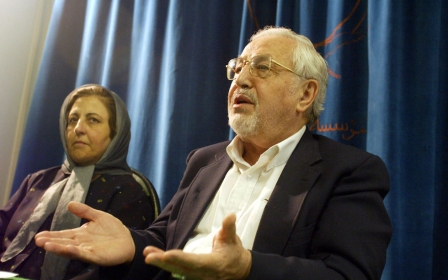Iran dismisses US demand for UN inspection of military sites

Iran has dismissed a US demand for United Nations nuclear inspectors to visit its military bases as "merely a dream".
It also said the International Atomic Energy Agency (IAEA) was unlikely to agree anyway.
The US ambassador to the United Nations, Nikki Haley, last week pressed the IAEA to seek access to Iranian military bases to ensure that they were not concealing activities banned by the 2015 nuclear deal reached between Iran and six major powers.
President Donald Trump has called the nuclear pact - negotiated under his predecessor Barack Obama - "the worst deal ever". In April, he ordered a review of whether a suspension of nuclear sanctions on Iran was in the US interest.
Iranian government spokesman Mohammad Baqer Nobakht responded at a weekly news conference broadcast on state television on Tuesday.
"Iran's military sites are off limits," he said. "All information about these sites are classified. Iran will never allow such visits. Don't pay attention to such remarks that are only a dream."
Iranian President Hassan Rouhani followed up later by saying the US call was unlikely to be accepted by the UN nuclear watchdog.
"The International Atomic Energy Agency is very unlikely to accept America's demand to inspect our military sites," Rouhani said in a televised interview.
Rouhani gave no indication why he believed the IAEA would decline the request. Under the deal, the IAEA can request access to Iranian sites including military ones if it has concerns about activities there that violate the agreement, but it must show Iran the basis for those concerns.
That means new and credible information pointing to such a violation is required first, officials from the agency and major powers say. There is no indication that Washington has presented such information to back up its call for inspections of Iranian military sites.
Under US law, the State Department must notify Congress every 90 days of Iran’s compliance with the nuclear deal. The next deadline is October, and Trump has said he thinks by then the United States will declare Iran to be non-compliant.
So far, IAEA inspectors have certified that Iran is fully complying with the deal, under which Tehran significantly reduced its enriched uranium stockpile and took steps to ensure no possible use of it for a nuclear weapon.
This was in return for an end to international sanctions that had helped cripple its oil-based economy.
During its decade-long stand-off with world powers over its nuclear programme, Iran repeatedly rejected visits by UN inspectors to its military sites, saying they had nothing to do with nuclear activity and so were beyond the IAEA's purview.
Shortly after the deal was reached, Iran allowed inspectors to check its Parchin military complex, where Western security services believe Tehran carried out tests relevant to nuclear bomb detonations more than a decade ago. Iran has denied this claim.
Under the 2015 accord, Iran could not get sanctions relief until the IAEA was satisfied Tehran had answered outstanding questions about the so-called "possible military dimensions" of its past nuclear research.
Iran has placed its military bases off limits also because of what it calls the risk that IAEA findings could find their way to the intelligence services of its US or Israeli foes.
"The Americans will take their dream of visiting our military and sensitive sites to their graves ... It will never happen," Ali Akbar Velayati, a top adviser to Supreme Leader Ayatollah Ali Khamenei, Iran's highest authority, told reporters.
Middle East Eye propose une couverture et une analyse indépendantes et incomparables du Moyen-Orient, de l’Afrique du Nord et d’autres régions du monde. Pour en savoir plus sur la reprise de ce contenu et les frais qui s’appliquent, veuillez remplir ce formulaire [en anglais]. Pour en savoir plus sur MEE, cliquez ici [en anglais].




